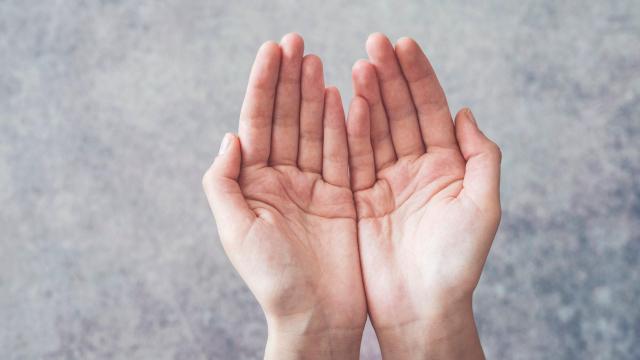A man in the UK appears to be the first person to have gotten a double-hand transplant for his particular condition, known as scleroderma. Five months after the surgery, the patient and his new limbs are reportedly doing just fine.
According to the BBC, 48-year-old Steven Gallagher developed the first signs of his scleroderma, a rare autoimmune disease that slowly tightens and scars the skin and other parts of the body, more than a decade ago. By his 40s, the condition had caused his hands to permanently curl shut and left him with excruciating pain. Following medical consultation, Gallagher agreed to go through with the rarely performed surgery. And in December 2021, he underwent a 12-hour-long procedure that involved 30 medical professionals.
The first known human hand transplant was performed more than two decades ago, and since then, about 100 transplants have been documented in the medical literature. But this seems to be the first done specifically for someone with scleroderma. And so far, Gallagher is plenty pleased about the results.
“After the operation, I woke up and it was quite surreal,” he told the BBC. “These hands are amazing, everything has happened so quickly. From the moment I woke up from the operation I could move them.”
Five months in, Gallagher’s donor hands have regained enough functionality to allow him to turn on a faucet, grasp and fill up a cup with water, and pet his dog. Perhaps most importantly, his hand-related pain has gone away as well.
These transplants aren’t entirely risk- and complication-free. Like other organ recipients, patients have to take a lifelong course of immunosuppressants to prevent their body from rejecting the new hands, and these drugs raise the risk of infections and other immune-related problems. The surgery, physical rehabilitation, and medications required for patients don’t come cheap either, costing upwards of a half million dollars over a lifetime.
But the available data does suggest that people are generally better off as a result. With proper therapy, donor hands are rarely rejected to the point of needing to lose them. Recipients usually regain enough function in their hands to perform most daily activities, and most report being satisfied with the procedure, even decades later. Improvements in the use and cost of immunosuppressants might further make this type of procedure more practical in the future.
As for Gallagher, he hopes that he’ll soon become handy enough to find work and enjoy other activities again.
“It has given me a new lease of life,” he said. “I’m still finding things hard just now but things are getting better every week with the physio and the occupational therapists. Everything is just slowly getting better.”
